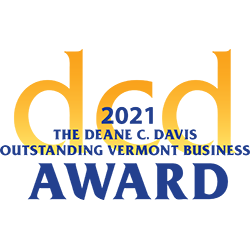Alaffia is Awesome
Our Body Care department has been carrying the Alaffia (Everyday Shea) line for a few years now and we are thrilled to see that everyone loves these products as much as we do! Alaffia makes effective, economical skin and hair care with purpose: to eliminate extreme poverty in Africa while helping their communities in central Togo sustain themselves through the fair trade of their indigenous resource – shea butter.
Shea Butter is included in almost all of the Alaffia products, except for their black soap items and their new line, Everyday Coconut, which feature a base of Coconut Oil instead of shea butter. All of Alaffia’s products are free of paraben’s and synthetic fragrances and are never tested on animals.
Just very recently we have established new pricing with Alaffia to offer these incredible items to you at a deeper discount. All of the 32 oz Everyday Shea and Coconut items are now $11.99 (previous price $13.99) and all of the other Everyday Shea and Coconut item prices have been lowered by 15% or more.
You can read how Alaffia got started below. Come into our Wellness department and try them out!
How Alaffia Began:
An Introduction by our Founder, Olowo-n’djo Tchala
Today, Africa is considered the poorest continent on Earth. Seventy-seven percent of Africans live on less than $2 per day, and women and children make up the majority of this number. African families must also cope with the impacts of diseases such as AIDS and malaria, high unemployment rates, and increasing problems with air and water pollution, including access to potable water. Africans are still experiencing colonial legacies that impede the well-being of the people, such as the systematic exclusion of women from the formal education system and barriers to adequate market information to get fair value for their products and resources.
I was born and raised in central Togo in the village of Kaboli, and experienced this discrepancy between the extreme poverty and the natural wealth of the African continent first hand. I was the sixth of eight children, and my siblings and I shared a 2.5 x 3 meter room with my mother. My mother was a farmer, and I began working on her farm at the age of 5. By my 10th year, I was working on other farms as a way to help my mother provide for my younger siblings, since my father was unable to provide for all of his 32 children. Like my older siblings, I dropped out of school by the 6th grade. During this time, I continued to work on farms and do other jobs to earn money, including collecting and selling shea nuts at the local market.
In 1996, I met my wife Rose Hyde, who is from a farming community in rural Washington State. Rose was in Kaboli as a Peace Corps Volunteer with the agenda of educating farmers on sustainable farming techniques. Two years after meeting Rose, I joined her in the United States. I began learning English immediately, and in 2004, I earned a Bachelors of Science in Organizational Studies, with emphasis on Global Economic Systems from the University of California, Davis. During my studies, I focused on trying to understand why the African continent is so poor, yet contains vast natural resources. My studies reinforced what I had learned as a child, that for Africa to rise out of poverty requires Africans directly participating and leading themselves rather than relying on the World Bank or other ex-colonial institutions.
Before my final year of school, in the summer of 2003, I decided that the urgency of reducing poverty could not wait for me to complete my studies. At this time, we began the process of establishing an organization that would empower communities while preserving culture and resources. Since Rose and I did not have any surplus funds, we applied to our local bank for a business loan of $50,000. As soon as the bank released the funds, I returned to Togo to organize women to handcraft shea butter.
Shea butter is the only resource that fit the criteria for our sustainable business plan to truly empower communities. First, the resource had to be environmentally sustainable. Shea trees grow wild over sixteen West and Central African countries. They are perfectly adapted to the savanna ecosystem, and require no fertilizer or irrigation. Furthermore, the shea nuts have been collected for thousands of years without impacting the shea tree populations and re-growth. Second, the resource had to be traded on the world market. Shea butter has been globally traded for centuries, and, more importantly, the global market price did not fairly reflect the labor involved in crafting shea butter. I realized that by paying even slightly more for this resource could greatly impact the women, much like my own mother, that collect shea nuts and sell shea butter to feed, clothe and school their children. Thirdly, and most importantly, every step of traditional shea butter extraction involves a great deal of cultural knowledge and practices. I felt strongly that true economic empowerment can only be achieved in Africa if the cultural fabric of our diverse societies is acknowledged in economic exchange.
Fairly traded, handcrafted Shea Butter benefits the communities that produce it as well as the communities that purchase it. The fair trade of our handcrafted shea butter and shea butter skin care products is bringing income to and empowering our communities in Togo, while making indigenous, sustainable and effective skin care available to the global community. Members of the Alaffia Shea Butter cooperative have the opportunity to use their traditional knowledge and skills to support their families. Furthermore, we dedicate a minimum of 10% of all sales to community empowerment projects in Togo, so the impact of fair trade handcrafted shea butter reaches beyond the cooperative.
Our customers also benefit because they are receiving an authentic product directly from the source. The same care and philosophies are applied when crafting our creams, lotions, and soaps in Lacey, WA. Rose grew up learning about the health benefits of indigenous plants in rural Washington State. She has taken this knowledge, her extensive education in Enthobotany, Biology and Ecology and created all our formulations – combining our handcrafted oils with other quality ingredients into highly effective, affordable skin care products. We believe customers should have access to body care products made with unrefined, natural ingredients. In turn, you – our customers help spread our message, provide feedback and ideas, and volunteer your time to help with our projects.
Thank you for visiting our site and helping us with our cause. We truly appreciate your support; nothing we do would be possible without it.
Peacefully yours,
Olowo-n’djo Tchala, Founder
(this is from the Alaffia website www.alaffia.com)



